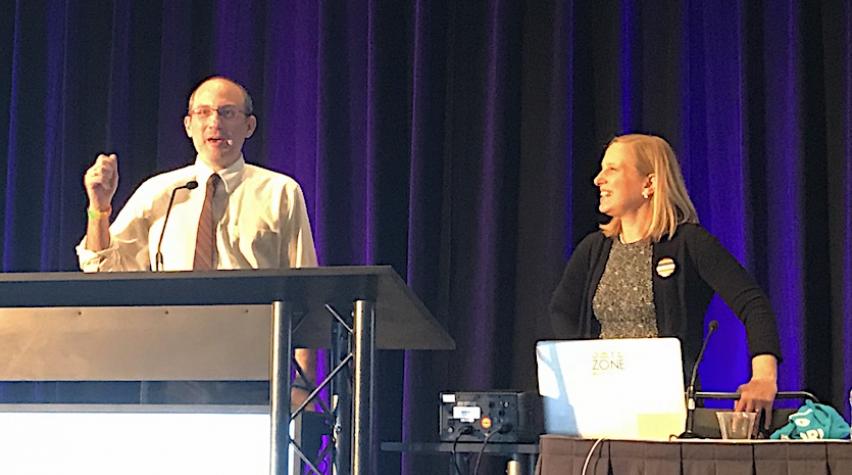The LGBTQ+ & Allies Training at the 2018 AIChE Annual Meeting highlighted the importance of inclusion

Political correctness is an effort to avoid language and actions that exclude or insult marginalized or oppressed groups. It is often derided as complex and overly burdensome.
However, this ignores the experience of minority groups, such as the LGBTQ+ community, who are burdened with the responsibility of navigating a society constructed without them in mind. As their colleagues, friends, and relatives, the least we can do is help to shoulder some of that burden by simply adapting our language and behaviors to be more inclusive.
The LGBTQ+ & Allies workshop, panel, and reception at the 2018 AIChE Annual Meeting provided an opportunity for chemical engineers to learn how to be an ally and why it is important.
Words matter
LGBTQ is an initialism for the community of lesbian (L), gay (G), bisexual (B), transgender (T), and queer or questioning (Q) individuals. It is most often seen denoted this way because it is simply more user friendly than other versions, such as LGBTQ+ and LGBTTTQQIAA, which attempt to include terms for all identities, such as transsexual, intersex, and asexual, among others.
Words and terms are important because they give us the tools to describe ourselves.
As Stephanie Farrell, Professor and Founding Chair of Experiential Engineering Education at Rowan Univ., explained during the LGBTQ+ ally training at the 2018 AIChE Annual Meeting, it would be challenging to define herself if we removed the word “woman” from language. Is being an engineer important to your identity? How would you describe that important facet of yourself without the word “engineer”?
Like any new information, these ideas and concepts can be initially overwhelming. But, like any new information, these ideas and concepts expand our knowledge and understanding of the world, which as scientists, is our common pursuit. We understand the importance of using accurate language to describe complex concepts, and how inaccuracies can undermine the validity of a scientific finding or conclusion.
During the LGBTQ+ ally training, Anthony Butterfield, Professor of chemical engineering at the Univ. of Utah, highlighted the fact that chemical engineers have no problem, for example, differentiating between the many different types of energy; we should have no problem understanding sex, gender, orientation, expression, etc.
Learn to be an ally
Like the difference between kinetic energy and chemical energy, we have to learn how to use the terms and ideas that are important to the LGBTQ+ community correctly. LGBTQ+ ally training teaches us how to adapt and expand society to include everyone. This helps to create a safe, collaborative, efficient, and inclusive culture in our communities, workplaces, and classrooms.
Not all companies have the resources for a LGBTQ+ inclusion initiative, but you can play your part by being an ally and creating a welcoming atmosphere for everyone. To be an ally:
- Be visible as an ally by displaying Safe Zone stickers and attending any meetings to promote inclusion and diversity
- Listen and support the perspectives of LGBTQ+ individuals
- Stay informed about the issues that affect LGBTQ+ people
- Use inclusive language and terms. See examples on this handout and this webpage.
- Correct myths or misperceptions
- Learn about coming out as not a one-time event but a process that is different for everyone
- Don’t assume a person’s sexual orientation or gender identity
- Correct heteronormative and cisnormative assumptions and culture
- Respond to bias whether or not you know a LGBTQ+ person is present
- Don’t disclose the identity of an individual without their permission.
Being an ally and putting these new terms and ideas into practice can be intimidating at first — we don’t want to risk offending others and looking foolish. If you are unsure, respectfully ask. If you use the wrong pronoun or make an incorrect assumption, for example, simply apologize and correct yourself. Instead of avoiding the interaction, start a dialogue as a first step in creating a bond.
Join the Community
For more information and resources, visit the American Society for Engineering Education’s (ASEE’s) LGBTQ+ virtual community and join AIChE’s LGBTQ+ and Allies online community.


